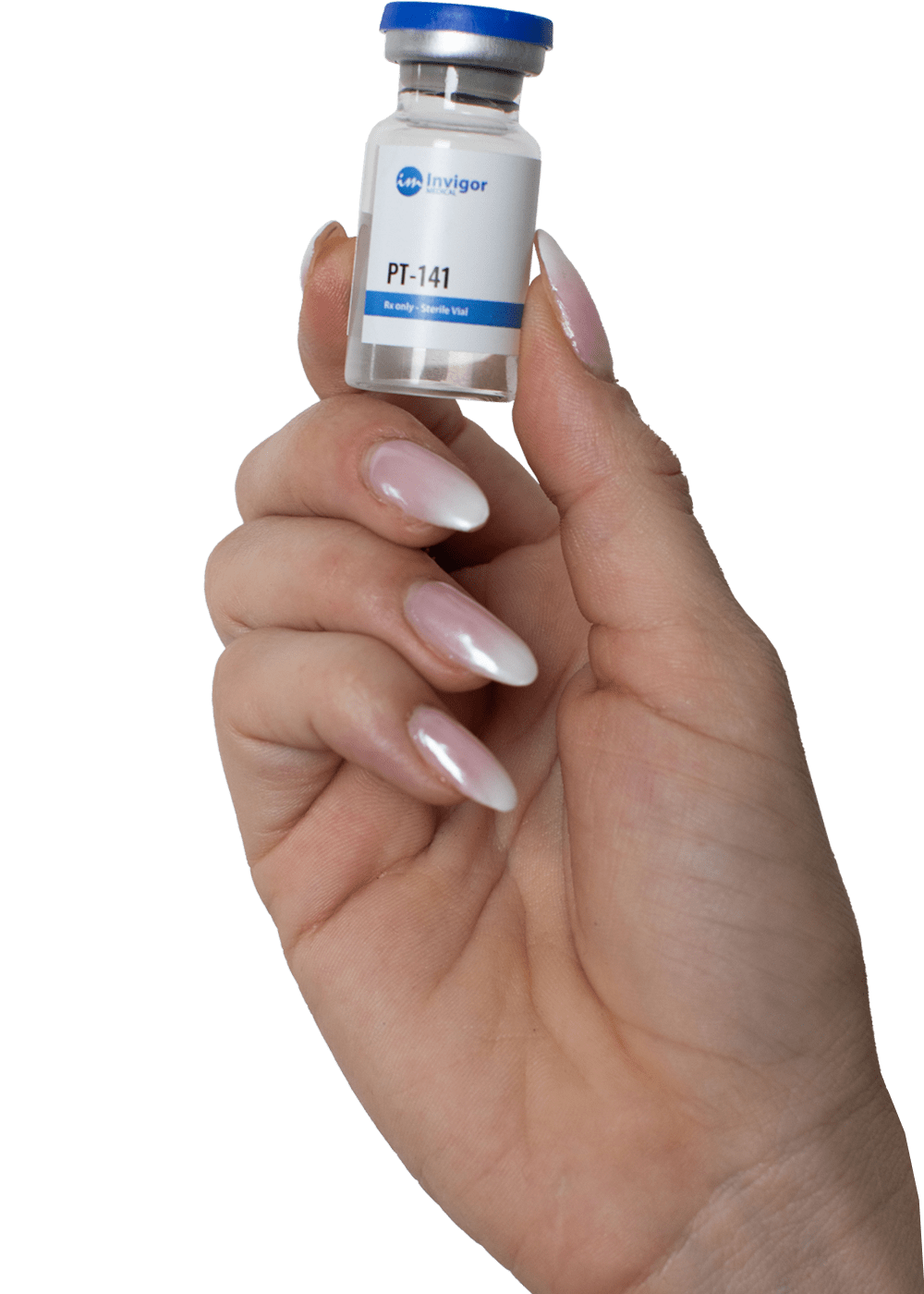As a college student, you’ll have plenty of new experiences and grow as a person. You often have more rigorous studies from high school. You meet new students from different backgrounds and professors with advanced knowledge. More than anything, many college students are exposed to new experiences that can affect their sexual health. Because these experiences are so new, students may not know where to turn to for reliable information and affordable care for their sexual health needs. As a result, young people as a demographic are more likely to develop a sexually transmitted infection (STI) due to a lack of access to health resources and education. According to a 2024 report from the CDC, nearly half of all of the reported STD cases came from young adults 15-24 years — the majority age of college students.
In addition, college students are more likely to be involved in cases of sexual assault while in college. Over 26% of women and 7% of men report a sexual assault out of all of their undergraduate student counterparts.
Because there are so many ways your college experience can impact your sexual health, it’s essential to have all the information and tools in your arsenal to protect yourself. If you know all of the nuances of contraception, STI prevention, and consensual relationships, it’ll be easier to stay healthy. As a result, you can enjoy your experience more instead of worrying about your physical and mental well-being.
Table of Contents
Let’s Talk About Consent
Definitionally speaking, consent is the agreement between two mentally sound parties to do something free from pressure, manipulation, or coercion. It’s not just about saying “yes” or “no” — valid consent is enthusiastic, informed, and continuous.
This means that if someone is intoxicated because of alcohol or drugs, they aren’t in the right mind to provide consent. Likewise, if you have to convince someone to say “yes,” they aren’t giving consent, as that’s considered coercion.
Consent works in all relationships, not just short-term ones. Therefore, even in a long-term relationship, you should always check in with your partner to respect their feelings in every situation.
Setting Boundaries with Confidence
When providing consent, boundaries are key. With them, you can understand what you and your partner are comfortable with doing, which will develop trust and respect. When having a conversation about consent, keep these tips in mind:
- Know your boundaries first: Before discussing consent with a partner, reflect on what you are uncomfortable with.
- Use clear and direct communication: Be upfront about your boundaries and expectations. Phrases like “I’m comfortable with this, but not with that” or “I need to take things slow” help set clear expectations. If something feels off, don’t be afraid to express it.
- Pick the right time and place: Conversations about consent and boundaries don’t have to happen in the heat of the moment. It’s best to talk in a relaxed, pressure-free environment where you can express yourselves openly.
- Practice active listening: Respect goes both ways. Listen to your partner’s boundaries without interrupting or dismissing their concerns.
- Use “I” statements”: Framing your thoughts with “I” statements can make conversations feel less accusatory and more personal. For example, “I need to feel comfortable before taking the next step” is more effective than “You’re making me uncomfortable.”
- Recognize that boundaries can change: People’s comfort levels can shift over time, and that’s okay. Regularly checking in with each other ensures that consent is still enthusiastically given and that both partners feel respected.
- Understand that ‘no’ is a complete sentence: If you say no, you don’t need to justify or explain yourself. A respectful partner will accept your decision without pushing for a different response.
If your partner still crosses any boundaries you’ve made despite having this conversation, it’s best to find a way to walk away safely. Surround yourself with people who respect your choices, and remember that your comfort and safety always come first.
Handling Peer Pressure and Party Culture
College life often comes with social events, parties, and new experiences, but these environments can sometimes create pressure to engage in activities that don’t align with your personal boundaries. Whether it’s pressure to drink, hook up, or push past your comfort zone, learning how to navigate these situations while staying true to yourself is essential.
For one, having a game plan before any social event is best. Go with someone you trust to make it easier to stick to your boundaries. If someone pressures you into drinking, hooking up, or anything else you’re not comfortable with, a simple “I’m good, thanks” or “That’s not for me” is enough. If they keep pushing, it’s best to have an exit plan, including texting a trusted friend to help you get home.
If you plan on drinking, set a personal limit and stick to it. Otherwise, your judgment will be impaired, prompting you to make risky decisions you wouldn’t usually make. Also, never accept drinks from strangers, and keep an eye on your drink at all times.
Staying Safe: Preventing STIs
Of any infection, STIs are arguably some of the most preventable. All you need to do is know how to stay safe, and you can live a life free from STIs.
Common Risks and How to Avoid Them
According to the 2024 CDC report, 2.4 million people sought out treatment for STIs in that year alone. This figure also doesn’t include those who left their STI untreated or unreported. These infections spread through sexual contact and bodily fluids. The most common include:
- Chlamydia and gonorrhea: These two STIs are bacterial infections that often have no symptoms but can cause complications if untreated. Spread through vaginal, anal, and oral sex.
- HPV (Human Papillomavirus): The most common STI, with some strains leading to genital warts or certain cancers. Spread through skin-to-skin contact.
- Herpes (HSV-1 & HSV-2): A viral infection causing cold sores or genital sores, often spread through kissing or sexual contact.
- Syphilis: A bacterial infection with early symptoms like sores or rashes that can cause serious complications if left untreated.
- HIV (Human Immunodeficiency Virus): A virus that weakens the immune system over time. Spread through unprotected sex.
While some infections like HIV don’t have a cure, others, like chlamydia, gonorrhea, and syphilis, can be treated with antibiotics and other simple medication. However, many STIs can also increase your risk of developing cancer and even becoming infertile, so it’s best to be safe if you are sexually active.
Why Regular Testing Matters
Even if you don’t have STI symptoms, you could still be an asymptomatic carrier, meaning you or your partner may not know you have one. Without regular testing for any of these infections, they can lead to serious complications.
Therefore, you should at least test yourself once a year if you are sexually active or if you regularly use protection. If you have multiple partners, you should get tested more frequently — around every three to six months.
Smart Practices for Safer Sex
In addition to testing yourself regularly, you should utilize one or more of these prevention methods:
- External condoms: This is a thin sheath worn over the penis to prevent semen from entering the vagina, anus, or mouth. You can choose from different materials: latex, polyurethane, and polyisoprene.
- Internal condoms: This is a soft, flexible pouch you can insert into the vagina or anus before sex. The larger outer ring stays outside the body, while the smaller inner ring helps keep it in place.
- Dental dams: This is a thin sheet of latex or polyurethane that acts as a barrier between the mouth and genitals or anus during oral sex.
- Lubricants: Water-based and silicone-based lubes help reduce friction and prevent condom breakage, making sex safer and more comfortable. Oil-based lubes (like coconut oil or lotion) should not be used with latex condoms, as they weaken the material and increase the risk of tearing.
In addition to these methods, you should also look into vaccinations, such as the HPV & Hepatitis B vaccines, which your university should provide if they have an on-site clinic or your general provider.

Finding Affordable Contraception
Many college students may also experience unintentional pregnancy without a proper contraception method. According to a 2019 report, 41.6% of pregnancies were reported as unintentional. The best way to avoid unintended pregnancies is to increase education about safe and effective methods of contraception, especially among young people. Here are some of the most popular methods:
- Condoms: Condoms are 87% effective if you place them on correctly.
- Birth control pills: This is a daily pill containing hormones that prevent ovulation. When taken consistently, it’s 93% effective at preventing pregnancy. Some pills also help with acne or menstrual regulation.
- Intrauterine Devices (IUDs): These contraceptives are shaped as a T that a healthcare provider will insert through the cervix. You can choose between a hormonal IUD and a copper IUD that does not release hormones. Hormonal IUDs last three to eight years, and copper IUDs last up to ten years.
- Birth control implant: Similar to an IUD, you will need a healthcare provider to insert this contraceptive under the skin of the upper arm, releasing hormones to prevent pregnancy for 3-5 years.
- Birth control shot: Every three months, you’ll receive this injection, which releases hormones into your body.
- Birth control patch: With this patch, you’ll place it on your skin and replace it once a week to release hormones.
- Birth control ring: A flexible ring you insert into the vagina, releasing hormones that you replace monthly or annually, depending on the brand.
- Emergency contraception: If you had unprotected sex without some form of birth control or your contraception failed, you can take this pill within five days. However, to ensure efficacy, take it as soon as possible after sex.
You can obtain most of these contraception methods through your campus clinic, health centers like Planned Parenthood, and trusted online services that aim to provide affordable options for everyone’s budget.
When discussing what contraceptive you’d prefer with your provider, be open about any concerns you have about costs and side effects. They’ll be able to help you decide which method is right for you based on your preferences, lifestyle choices, and medical history.
LGBTQ+ Sexual Health and Wellness
While young people develop STIs at a higher rate than any other age demographic, members of the LGBTQ+ community are also at a higher risk of developing an STI than others. In particular, gay, bisexual, and men who have sex with men (MSM) have high rates of syphilis and HIV infections, as the CDC highlights.
Similar to all young adults, many young people of the LGBTQ+ may have a lack of access to healthcare and education for safe prevention and treatment methods. However, they may face additional barriers that heterosexual students may not face, raising their risk for STI prevention. For one, most public education courses on sex education are heteronormative — meaning they primarily focus on staying safe in heterosexual relationships. As such, LGBTQ+ students may not have enough support to answer questions about staying safe in any non-heterosexual relationship.
LGBTQ+ students may also face financial barriers seeing providers and seeking affordable preventative methods that heterosexual students don’t face. According to a 2023 KFF report, 33% of LGBT+ respondents self-reported themselves as low-income, whereas only 44% of non-LGBT+ respondents reported themselves as low-income. Even if LGBTQ+ students can afford healthcare, they may receive discrimination that prevents them from receiving care — more than twice the number of LGBTQ+ respondents experienced discrimination in a healthcare setting than non-LGBTQ+ respondents.
Despite these experiences, it’s essential to stay safe with prevention methods outlined earlier, such as external and internal condoms, dental dams, and gloves. You can also stay safe from HIV with:
- PrEP (Pre-Exposure Prophylaxis): A daily medication that reduces the risk of HIV transmission by 99% when taken consistently. It’s available through Planned Parenthood, LGBTQ+ health clinics, and online telehealth services like Nurx and MISTR.
- PEP (Post-Exposure Prophylaxis): An emergency medication taken within 72 hours of potential HIV exposure. It is a 28-day treatment, which you can access at ERs, urgent care centers, and HIV clinics.
Beyond your physical health, you can also stay safe in your relationships by respecting the boundaries of others and recognizing signs of abuse — which are essential in any relationship — regardless of gender or orientation. If you need support, you can contact your campus counselors, support groups, and organizations like Love Is Respect and the Trevor Project.
Finding LGBTQ+ Friendly Healthcare
Many national resources exist to provide inclusive and affirming care for young people in the LGBTQ+ community, such as:
- OutCare health: A national directory of LGBTQ+ friendly providers, including doctors, therapists, and sexual health specialists.
- GLMA provider directory: A network of LGBTQ+-affirming healthcare professionals covering sexual health, PrEP, hormone therapy, and general medical care.
- Planned Parenthood: Offers inclusive reproductive and sexual health services, including STI testing, gender-affirming services, PrEP, and contraception.
These directories can help you find a provider who can create a space you feel safe and respected in, along with educating you on safe sexual practices.

How Your Lifestyle Impacts Sexual Health
Sexual health isn’t just about using protection or getting tested — your daily habits, mental well-being, and overall lifestyle choices also influence it.
Stress and Your Libido
When your mind is preoccupied with deadlines and exams, your body enters a state of fight or flight and releases hormones like cortisol. If you are chronically in this state, your body will aim to compensate by utilizing sex hormones like estrogen, progesterone, and testosterone, which can affect your sex drive. As a college student, having a lowered libido can affect your relationships, your confidence, and your overall well-being — causing a self-perpetuating cycle of stress.
The best way to manage this problem is to stop stress before it becomes a chronic problem with the following tactics:
- Prioritize self-care: Relaxation, deep breathing, and mindfulness exercises can lower cortisol and help you feel more in tune with your body.
- Get active: Exercise releases endorphins, which help reduce stress and improve libido.
- Find other avenues for physical affection: Even if you don’t have a desire for sex, simply hugging, kissing, or holding hands can help release oxytocin, the love hormone that simultaneously can help you relieve stress.
- Talk about it: If stress is affecting your sex life, open up to your partner or a trusted friend — communication can ease anxiety.
- Set boundaries with schoolwork: Taking breaks and practicing time management can prevent burnout and help you stay mentally balanced.
- Seek support if needed: If stress, anxiety, or depression are significantly affecting your well-being, consider reaching out to a campus counselor or therapist for guidance.
If, after practicing these exercises, you still feel anxious and have a low libido, you can also seek professional help for a prescription. They’ll be able to prescribe medication for the anxiety itself and refer you to other medications that can treat side effects.

How Diet Impacts Your Sex Life
As a college student, you may focus on fast and readily available foods on campus. Before heading to your closest fast food joint during a late-night study session, know that what you eat can also affect your sexual and overall health. Consuming a diet filled with saturated fats, sugar, and processed foods will increase your risk of raising your BMI levels. For men and women alike, obesity can then affect your hormone levels and the blood flow to your reproductive organs, which can reduce your sexual enjoyment.
Instead, it’s best to fill your diet with these foods, which can support your sexual and overall health:
- Salmon: Packed with B vitamins, protein, and omega-3 fatty acids, salmon can help stimulate a healthy blood flow and reduce your risk of developing heart disease.
- Lean proteins (chicken, fish, tofu, lentils): Provide zinc and iron, which are essential for testosterone production and overall energy levels.
- Nuts and seeds: High in omega-3 fatty acids and arginine, which support heart health and circulation.
- Apples: This powerful fruit contains quercetin, an antioxidant that can improve circulation.
- Leafy greens: Packed with magnesium and iron, essential for hormonal balance and sexual function.
In addition, it’s best to avoid excessive alcohol intake, which can cause both temporary and chronic erectile dysfunction and can increase your risk of developing heart disease.
Sleep and Wellness
Sleep is the ultimate regulator of your body’s functions, including your reproductive system. For one, your vascular system rests when you sleep, lowering your heart rate and blood pressure. This resting time ensures that your circulation when you’re awake is regular, improving blood flow and lowering your risk of heart failure in the future.
As a young adult, your body also produces essential growth hormones essential to your sexual health and muscle growth. Because of these benefits, it’s best to ensure you get the best possible sleep possible. This means no late-night study sessions. Instead, stick to a regular sleep schedule, limit your blue-light exposure before bed, and avoid caffeine later in the day.
If you’re still not getting enough sleep, you may want to participate in a sleep study or seek out sleep aids that can help you feel energized during the day.
Letting Your Mental Health Guide Your Sexual Health
It’s one thing to have a bad day at class, which may put you out of the mood from having sex with your partner. It’s an entirely different issue if you find you have little desire to have sex along with other activities you used to enjoy. This is a key sign of depression — just one of the many ways your mental health affects your sexual health. Similarly, one symptom of Bipolar Disorder is hypersexuality during manic episodes, which can cause a strain on your relationship. Even when you seek medical treatment for mental health conditions, you may experience adverse symptoms that can affect your sexual health. For example, SSRIs can curb your libido, delay orgasms, or cause difficulties with arousal.
Because of this delicate balance, it’s essential to find treatment from a sex-informed therapist or mental health professional who has experience helping those find relief from mental health challenges without adverse side effects that can affect your sexual health.
More than anything, remember that your sexual health journey isn’t set in stone. It’s personal and ongoing, especially as you explore contraception options, safe sex methods, and libido enhancers. However, you’re not alone. You can set a healthy foundation for your future as long as you utilize the tools available and consistently try to stay safe.
Sexual Health Resources For College Students
If you need more information about boosting your sexual health, use these resources!
Affordable Clinics and Health Programs
- Planned Parenthood: Provides confidential STI testing, birth control, emergency contraception, and sexual health counseling. Many locations offer sliding-scale pricing based on income.
- Federally Qualified Health Centers (FQHCs): These government-funded clinics provide comprehensive healthcare, including reproductive and sexual health services, to underserved communities.
- Title X Clinics: Federally funded clinics that offer confidential, affordable reproductive health services, including STI testing and contraception.
Comprehensive Online Directories
- Bedsider: This birth control support network provides detailed information on contraceptive options, sexual health, and clinic locators.
- CDC’s GetTested Locator: A tool that helps users find nearby STI testing centers and learn more about testing options.
National Hotlines and Support Services
- CDC STI Hotline — (800-232-4636): This foundation offers expert advice on STI prevention, symptoms, and treatment options.
- Love Is Respect — (866-331-9474): A hotline for relationship support, including help with dating violence and setting healthy boundaries.
- The Trevor Project— (866-488-7386): A crisis and support hotline for LGBTQ+ youth, offering mental health resources and sexual health guidance.












